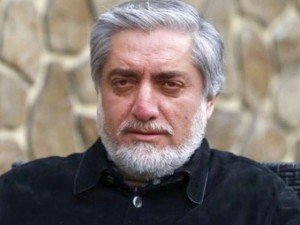Latest News
CEO: Kundoz collapse shows Afghanistan still needs foreign forces
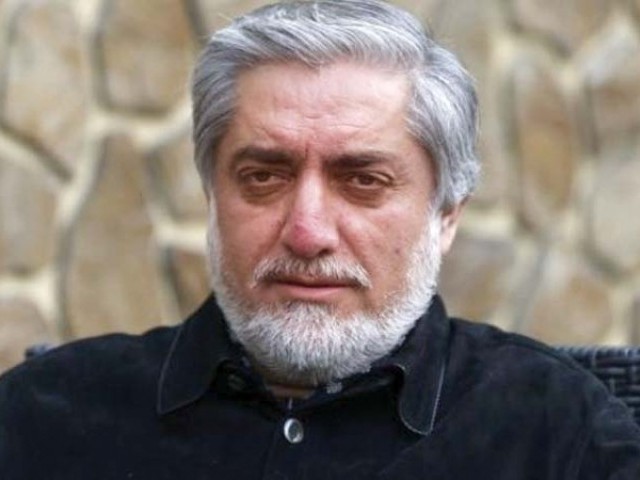
Afghanistan’s Chief of Executive Officer (CEO), Abdullah Abdullah, said he hoped the northern Afghan town of Kunduz would be retaken in one or two days, but said its fall to the Taliban showed the need for continued foreign support for Afghan forces.
Kunduz this week became the first provincial capital to be taken by the Taliban since the hard-line Islamist movement was toppled from power in 2001.
Abdullah said Afghan forces had been shouldering “a huge responsibility” in the past year since the withdrawal of the bulk of foreign troops from Afghanistan.
“I hope that we will recover Kunduz soon, in the coming one or two days, hopefully,” Abdullah told Reuters in New York where was attending the U.N. General Assembly and meeting Afghanistan’s foreign backers.
“At the same time, the need for maintaining support and sustaining support for Afghan forces is more evident,” he said.
Abdullah said it was up to the United States to decide whether to reconsider plans for reducing its presence.
But he said: “As far as I understand, the view of all those (U.S.) Army generals and officers on the ground … in Afghanistan, as well as our own security and military leadership, is that maintaining a level of force beyond 2016 is necessary.”
In May, U.S. President Barack Obama said that by the end of 2015 the American force in Afghanistan would be roughly half of the current total of about 10,000 and would operate only from bases in the capital, Kabul, and Bagram, a giant air base near that city.
The plan is to reduce the force to just a few hundred by the end of 2016, mainly to protect the embassy and other U.S. interests.
The Wall Street Journal reported last Thursday that U.S. and allied defense officials, increasingly wary of the cutbacks, were reviewing new options that include maintaining the current number of U.S. troops beyond the end of 2016.
Asked about criticisms of himself and President Ashraf Ghani over the fall of Kunduz, Abdullah said the reasons for its capture by the Taliban would have to be looked into.
“We knew that the terrorist groups as well as Taliban had concentrated in Kunduz for quite some time. And how they managed and what happened and which were the shortcomings or weaknesses that led to the fall of Kunduz, that has to be studied on its own merit,” he said.
Abdullah said there would be time to address the criticism. “But today is the time to unite around our security forces and back those security forces and help them in whatever way … so the people of Kunduz are rescued.”
Abdullah elaborated on charges he leveled at neighboring Pakistan in his General Assembly address when he called on Islamabad to crack down on militant sanctuaries.
“I would say that without (the) support the Taliban are receiving in Pakistan, the military, security situation would have been different, so it’s an important issue,” he said.
Abdullah and Ghani were persuaded to share power after months of wrangling over a contested election last year. Abdullah took the title of chief executive, while Ghani was named president.
Reuters

Latest News
US shows greater willingness to engage with the IEA
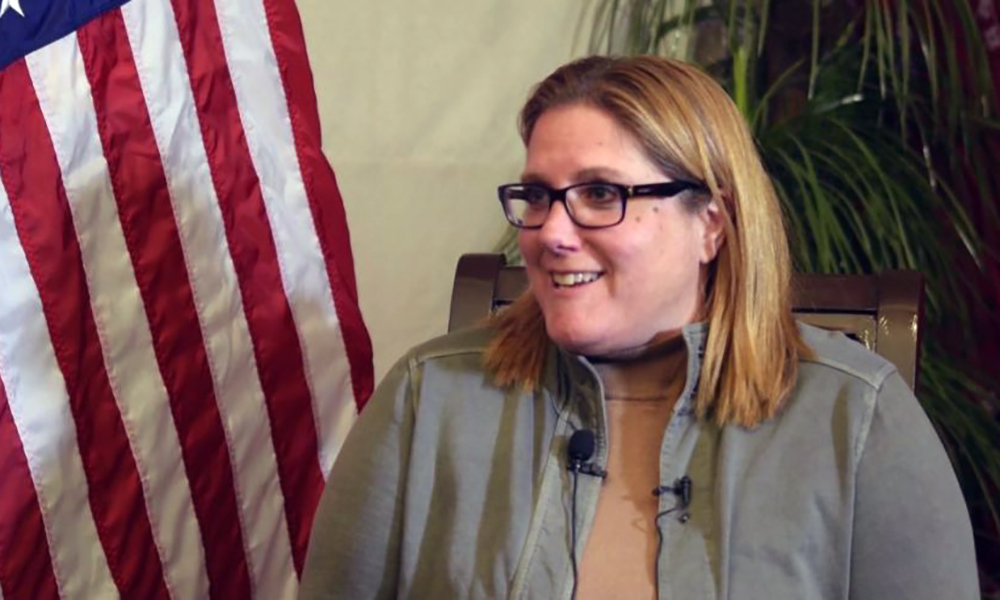
Washington is willing to move towards greater engagement with the Islamic Emirate of Afghanistan (IEA) as it seeks to tread a fine line between its human rights concerns and helping the Afghan people, interviews with top US officials and senior aid figures reveal.
Speaking to The New Humanitarian on the sidelines of a donor meeting in Istanbul last month, Karen Decker, chargé d’affaires of the US mission to Afghanistan, said Washington has “learned the hard way that isolation is ruinous. It’s ruinous for the Afghan people. It’s ruinous for the region”.
In the past year, the UN, several international and local NGOs, and Washington have all signaled that avoiding the Islamic Emirate won’t solve Afghanistan’s economic and humanitarian issues, The New Humanitarian reported.
This comes despite the IEA still refusing to allow girls and women to study beyond the sixth grade.
Decker told The New Humanitarian that Washington is now in a position where it must “very carefully navigate the non-recognition policy”, which requires a delicate balance of keeping in mind that the IEA took power by force rather than a democratic vote while still finding ways to reach the millions of Afghans who require emergency assistance.
One NGO source, who asked to remain anonymous, was quoted as saying by The New Humanitarian that “engagement [with the IEA] is necessary, but we have to find a way to balance engagement while not compromising on our principles.”
Decker agreed, saying Washington would continue to engage with the IEA on “pragmatic issues”, with humanitarian assistance and human rights being her primary areas of concern.
Because its non-recognition policy precludes US officials from working in the country, Washington has partnered with local and international groups on the ground to deliver assistance directly to the Afghan people.
But even with that cooperation, it’s not always so easy, as these groups must also tread carefully amid increasing IEA restrictions and regulations, The New Humanitarian reported.
Even though there is still a long way to go, particularly in terms of addressing US human rights concerns, Decker told The New Humanitarian she feels Washington’s efforts have led to some positive results.
“Eighteen months ago, we were worried about famine, and there is no famine in Afghanistan,” Decker said, crediting this largely to the work of local and international aid organizations.
However, she pointed out that Afghans still need more food assistance than in the past: “So, in some respects, you trade one problem for another.”
Decker raised another issue that adds to the difficulty of engaging further: the Islamic Emirate’s unwillingness to acknowledge any problems in the country: “They like to present Afghanistan as a success story… [and] they don’t want anyone thinking there’s anything wrong.”
She said if the Islamic Emirate were more straightforward to deal with, then humanitarian actors would save a lot of time and money and be able to reach those in need more quickly.
“We use a lot of time and effort making it work, because of the Taliban (IEA). They are fundamentally the challenge to making this work. We are able to navigate [it], but it would be much more efficient if the Taliban were much more [open].”
Decker did, however, give the Taliban some credit, saying they had shown some flexibility, especially in emergency situations.
She pointed to the Islamic Emirate’s responses to a series of earthquakes that rocked the western province of Herat, and the recent mass expulsions of hundreds of thousands of Afghans from neighboring Pakistan, as examples of when the IEA saw it necessary to amend or loosen some of their restrictions, The New Humanitarian reported.
“Women were suddenly allowed to work because they had to reach women beneficiaries,” she said.
While engagement efforts have sparked widespread criticism, all the sources The New Humanitarian spoke to said they saw little benefit in pretending the Islamic Emirate does not exist.
With an “overwhelming need in the country”, simply ignoring the IEA will do nothing to improve the lives of the millions of Afghans who remain in need, said Decker.
“It’s not in anyone’s interest for us to isolate the country,” she added. “And I say this over and over: I feel strongly that if the United States does not advocate for the Afghan people, nobody will. So, I don’t need any more motivation than that.”
The New Humanitarian reached out to the Islamic Emirate’s Ministry of Foreign Affairs for comment on several matters related to the issue of engagement, but it failed to respond.
Decker and other sources did however, express some hope based on private meetings and the public statements of several high-ranking Islamic Emirate officials, who have acknowledged that all girls and women should be allowed to return to school and that the government must expand beyond just the IEA.
“We know that there [are] senior Taliban leaders who have their daughters in school outside of the country, and some of them have even been open in their own statements about the importance of education,” said Decker.
However, for progress to be made towards US recognition, she said the Islamic Emirate must officially change some of its policies, pointing to increased work opportunities for women and real inclusion of non-IEA members in the government as concrete examples of possible game-changers.
Latest News
Afghan, Turkmen officials discuss early completion of Herat Noorul Jihad substation
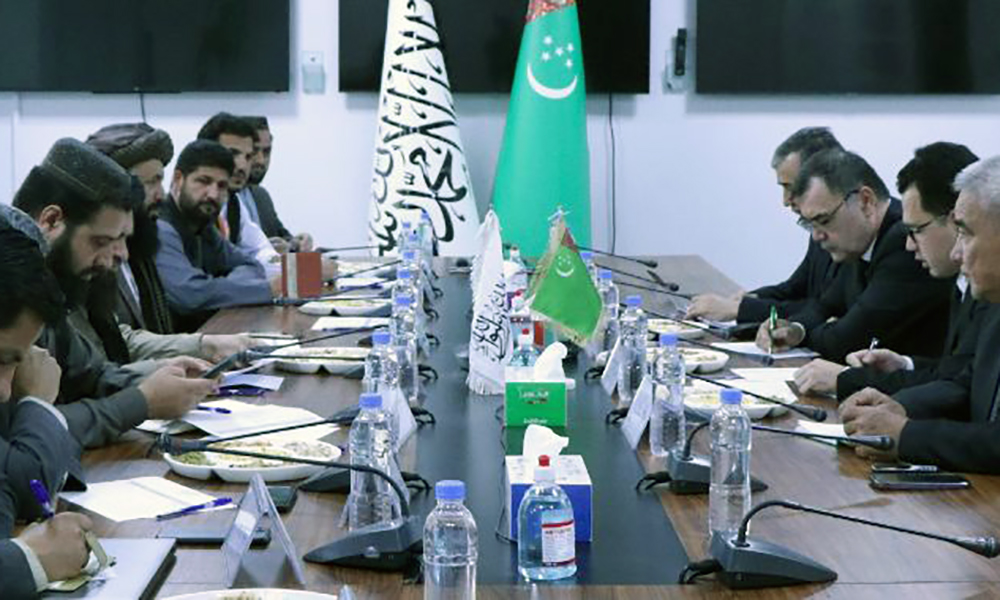
Da Afghanistan Breshna Sherkat (DABS) leadership has met with a delegation from Turkmenistan to discuss the completion and inauguration of the new Herat Noorul Jihad substation.
At the meeting, Mawlawi Abdul Rahman Rahmani, Chief Operating Officer of DABS, provided an update on the progress of the substation and said work on the project is almost complete.
It was agreed that the substation will be operational once all remaining technical issues between the two parties are resolved.
Murad Artikov, Turkmenistan’s Head of International Projects, commended DABS for its cooperation in the construction of the Noorul Jihad substation, and expressed confidence that the project will be completed in the near future.
He also said that a protocol outlining equipment and technical matters will be finalized by both parties.
Upon the completion of this project, the import of electricity from Turkmenistan to Herat is expected to increase, benefiting thousands of new customers in the province.
Latest News
Tehran ‘ready to help’ IEA fight terrorism after Herat mosque shooting
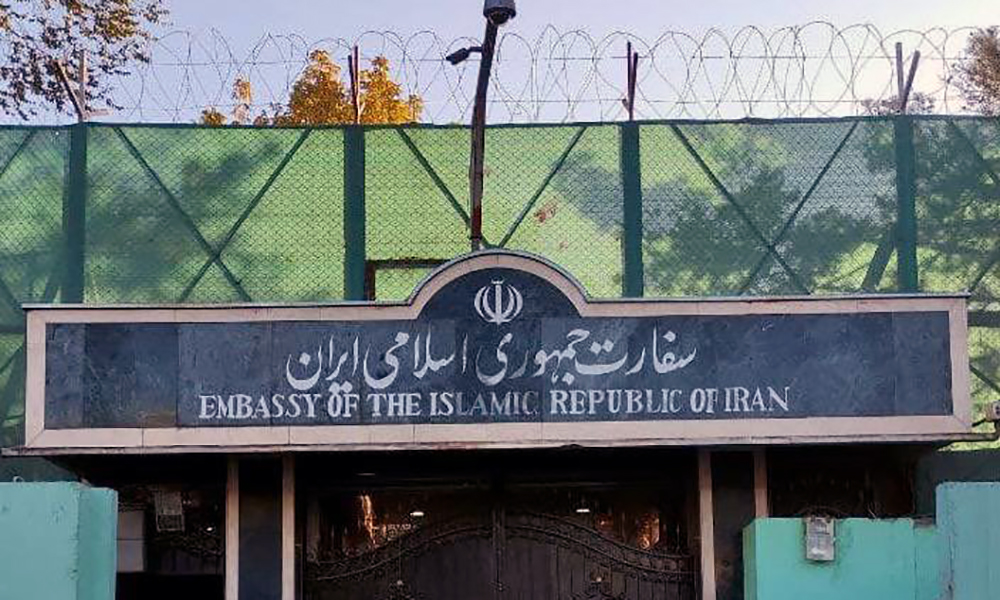
Iran’s embassy in Kabul has announced Tehran is ready to work with the Islamic Emirate of Afghanistan (IEA) to fight terrorism.
This came just hours after a gunman opened fire on worshipers at a mosque in Herat province. At least six people are believed to have been killed in the shooting – which the Iranian embassy labeled a “terrorist incident”.
The embassy said it wants the perpetrators identified and punished.
Abdul Mateen Qani, the spokesman of Afghanistan’s Ministry of Interior, said the incident happened on Monday night in Herat province, in the Shahrak area of Guzara District, when an unknown gunman opened fire on worshipers with an AK-47.
Qani said six people died and one was wounded.
He stated that further details would be released later.
So far, no group or individual has claimed responsibility for the attack.
-

 Sport4 days ago
Sport4 days agoAfghanistan beat Iraq 5-3, inch closer to Futsal World Cup berth
-

 Regional4 days ago
Regional4 days agoNew UK sanctions target Iranian drone industry
-

 Latest News4 days ago
Latest News4 days agoEU allocates 17 million euros to support Afghans on the move
-

 Latest News3 days ago
Latest News3 days agoPakistan extends registered Afghan refugees’ stay till June 30
-

 World5 days ago
World5 days agoUS student protests over Gaza intensify despite arrests
-

 Regional3 days ago
Regional3 days agoChina to host Hamas, Fatah for Palestinian unity talks
-

 Sport2 days ago
Sport2 days agoAfghanistan qualify for FIFA Futsal World Cup for first time ever
-

 Latest News4 days ago
Latest News4 days agoTripartite trade meeting held in Kabul to boost regional connectivity

